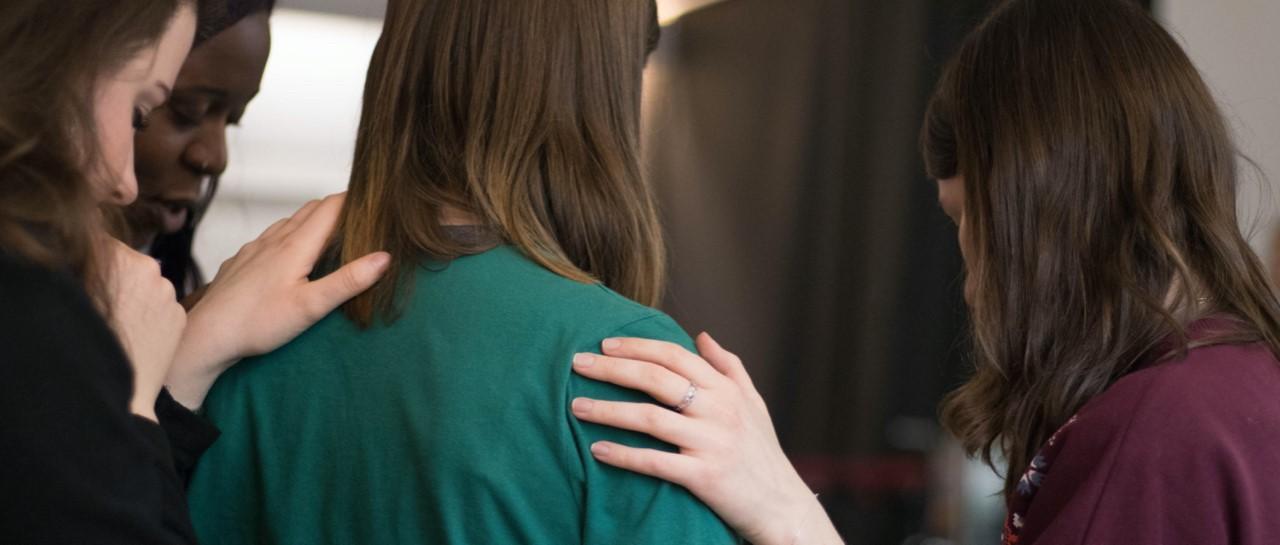
What to do if you have a panic attack in public
Peer reviewed by Dr Sarah Jarvis MBE, FRCGPLast updated by Emily Jane BashforthLast updated 2 Dec 2021
Meets Patient’s editorial guidelines
- DownloadDownload
- Share
- Language
- Discussion
A panic attack can be a scary experience at any time, but particularly if you have one in public. Panic attacks can come on unexpectedly, even if you've been having fun so far. So, it's important you know the signs of a panic attack and the coping strategies you can practise to calm yourself down when anxiety intensifies.
In this article:
What happens to your body during a panic attack?
Panic attacks are caused by a sudden surge of intense anxiety. This surge is activated through your built-in alarm system which helps you jump to action in situations that may be dangerous, similar to when a smoke alarm detects a hint of smoke.
Holly Brick, a senior well-being practitioner, explains how this mechanism, which can happen in a flash, is critical to your survival. She compares it to the 'fight or flight' approach used when humans would hunt for food.
"It helps push you to take action in life-threatening and dangerous situations. For example, think back to cave people times when they hunted for food. While out hunting, if someone came across a large and very hungry bear, this built-in alarm system would trigger a variety of complex and purposeful mechanisms to keep them safe.
"This could be to fight the bear with a sudden surge of adrenaline that pumps more blood through the body to the areas where it's needed. Or, they might have assessed in that split second that they needed to get out of this situation, taking the flight approach. Again, the adrenaline pumping through their bodies would have prepared them to run while other symptoms, such as sweating, kept them cool. The third option might have been to play dead and totally freeze. This was sometimes the best option."
We now live in an advanced society where we won't usually have to fight or flee from a bear, but social threats present themselves in different ways.
"This might include pressures at work, fear of not being liked, failure, not being able to pay rent, health problems, or the impact of the pandemic. However, your built-in alarm system cannot tell the difference between real immediate threats, such as the bear, and less immediate social threats, such as a work deadline," says Brick.
Brick says this is mainly because your bodily sensations and brain perceive a social threat as immediate danger: a comparison would be burning your toast, setting your smoke alarm off. The smoke alarm does exactly what it is meant to do, but it can't tell the difference between burnt toast and smoke from a house fire.
"In other words, your brain tells you something is dangerous based on your own appraisal of that situation. When the alarm goes off, you experience a rush of physical changes and make a split-second decision to either fight, flee or freeze to escape the danger," she concludes.
How do you know if you are having a panic attack?
Back to contentsThe signs of a panic attack include:
Immediate panic and fear.
A racing heart.
Feeling sweaty.
Feeling hot.
Dizziness.
Difficulty breathing.
Brick explains that panic attacks are sudden and they can be distressing, especially if you have never had one before.
"This then leads to a catastrophic thought which misinterprets these changes in bodily symptoms to mean immediate danger. Some people may experience thoughts such as 'I'm having a heart attack' or 'I’m going to die.' This in turn keeps the panic going."
She says your misinterpretation of those bodily sensations creates a vicious cycle by further fuelling panic symptoms, which perpetuates your fear and catastrophic thinking.
Continue reading below
What should you do if you are in public and start having a panic attack?
Back to contentsIf you notice the signs related to a potential panic attack, Brick recommends an exercise to help ground you and bring you back to the present moment. This will distract you from the attentional focus you place on your bodily sensations during, or just before, a panic attack.
Holly Brick's exercise for panic attacks
Look around for five things that you can see, and say them out loud. Pay attention to the colours and textures, and really take in what you see.
Think of four things that you can feel, and say them out loud, noticing the sensation of how these things feel against your body.
Listen for three sounds. What do you notice?
Now pay attention to two things you can smell. If this is more difficult, try thinking of a favourite smell that reminds you of a happy moment.
Finally, notice one thing you can taste. If this is difficult, think of your favourite food.
She says this exercise is also helpful in breaking the anticipatory anxiety where you fear the next panic attack. This leads to further hypervigilance and attentional focus on your bodily changes, and often means you avoid people and places.
"Following a panic attack, you might be constantly on the lookout so as to prevent another attack. However, this attentional focus actually causes you to be overly vigilant. This leads to misappraisal of any small bodily change as a signal of immediate danger or panic, and so the cycle continues."
Use the senses technique if you notice these symptoms creeping in. This is an effective way of calming this response.
Other coping methods and resources to help with panic attacks
Self-help apps - such as SAM (Self-help for Anxiety Management) from the University of the West of England.
Exercise - Brick says this can burn off additional adrenaline alongside boosting endorphins that you experience following exercise to lift your mood. Physical activity also helps increase your confidence, which can often be zapped by panic attacks.
Assessing your caffeine intake - high levels of caffeine can further exacerbate and heighten anxious symptoms, which can activate a panic attack.
"Sometimes, understanding panic attacks and how your body is built to aid your survival when faced with a real threat can help you manage attacks better. Having that knowledge will help you challenge those catastrophic thoughts. Logic allows you to understand that what is happening is actually a very normal response," says Brick.
What can others do if they see someone having a panic attack in public?
Back to contentsRemove someone from a crowd and take them to one side.
Breathe slowly with them.
Be empathetic.
Be patient.
Listen to the person and what they need.
Allow them to share how they are feeling.
Don't panic with them - try to stay as calm as possible.
Continue reading below
Can panic attacks be prevented in the future?
Back to contents"Panic attacks and anxiety can often lead to avoidance. Unfortunately, avoidance can keep panic going. Taking small steps to begin re-engaging in things you have been avoiding that you once enjoyed is really vital for overcoming panic," says Brick.
It can help to expose yourself to the feared situation, so you can overcome it in the long term. You don't need to rush into this, and can take small steps. Additionally, Brick stresses the importance of working with an experienced and qualified practitioner to support you in addressing your panic. By seeking professional help sooner rather than later, you can live your life on your terms, not on anxiety or panic's terms.
Where can you find support for anxiety, stress or panic disorder?
Back to contentsYou can consult your GP, who might refer you for a course of therapy or prescribe anti-anxiety medication. Also, lean on those around you rather than bottling your feelings of anxiety up, allowing them to build into full-blown panic in a public setting. Talk to your friends and family and let them know what they can do to help you when you feel anxious.
Patient picks for Panic attacks

Mental health
Alcohol and anxiety: can booze trigger panic attacks?
Up to one third of people will experience a panic attack at some point in their lives. Alcohol can be a big trigger of panic attacks for those who are susceptible to anxiety, so alcohol and anxiety can sometimes go hand in hand. How can alcohol make panic attacks worse?
by Amberley Davis

Mental health
What happens to your body during a panic attack?
We all need a bit of stress and anxiety to motivate us. But what happens when your body takes it to extremes? Anxiety disorders (where anxiety is so extreme it affects your functioning) comes in all shapes and forms, and often goes hand in hand with panic attacks. Fortunately, there is effective treatment.
by Dr Sarah Jarvis MBE, FRCGP
Article history
The information on this page is peer reviewed by qualified clinicians.
2 Dec 2021 | Latest version
2 Dec 2021 | Originally published

Ask, share, connect.
Browse discussions, ask questions, and share experiences across hundreds of health topics.

Feeling unwell?
Assess your symptoms online for free
Sign up to the Patient newsletter
Your weekly dose of clear, trustworthy health advice - written to help you feel informed, confident and in control.
By subscribing you accept our Privacy Policy. You can unsubscribe at any time. We never sell your data.